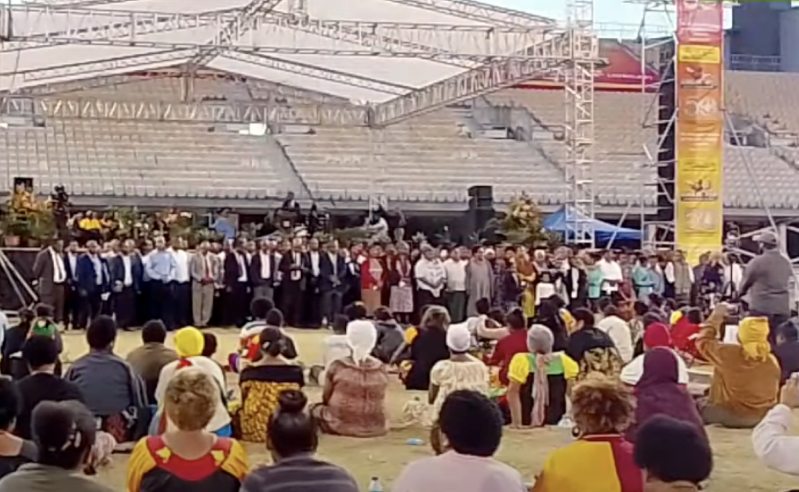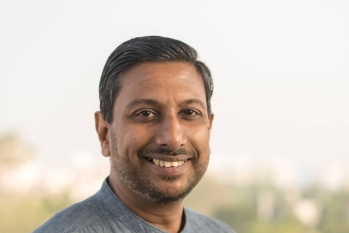
Papua New Guinea observed its annual National Repentance Day on Tuesday (Aug. 26) with prayer gatherings and worship services across the country, while the head of the Evangelical Lutheran Church of PNG (ELC-PNG) urged leaders and citizens to take the call to repentance more seriously.
Christians from different denominations gathered at Sir John Guise Stadium in Port Moresby before dawn on Aug. 26 for prayers, sermons and music under the theme “repent, reconcile and reset Papua New Guinea,” the Post-Courier reported. Attendees dressed in the national colors to mark the occasion, which concluded with a performance by Nigerian gospel artist Sinach at the request of Prime Minister James Marape.
The holiday, first declared in 2007, is meant to encourage citizens to reflect on the nation’s Christian heritage. Yet Rev. Dr. Jack Urame, head bishop of ELC-PNG, said the day’s impact has been limited. “In the last 18 years, we have been celebrating this national day, but its significance has not been felt or experienced across the country,” he said in a statement.
Urame pointed to continuing problems such as violence, corruption, drug and alcohol abuse, and tribal conflict as evidence that true repentance and transformation are lacking. “Repentance is a way of life, acknowledging God as the source of our life, our country and our very existence, yet the way we live as a nation does not reflect that we have truly repented or changed our way of life,” he said.
He urged leaders to set an example by ending dishonesty, greed and misuse of public funds, and by promoting respect, honesty and service to others. “True repentance is not saying ‘I’m sorry,’ but choosing to think and actuate positive traits,” Urame said.
Clergy from several denominations also addressed the Port Moresby gathering. Joseph Walters, chairman of the Body of Christ Church, emphasized that genuine repentance must come from the heart. Leaders from the Evangelical Alliance and the PNG Council of Churches encouraged reconciliation and transformation of behavior in personal and communal life.
Urame said meaningful change requires discipline, responsibility and a willingness to confront cultures of corruption, violence and bribery. “Repentance is not a one-time act but a way of life, and it must be reflected in the way we live every day,” he said.






